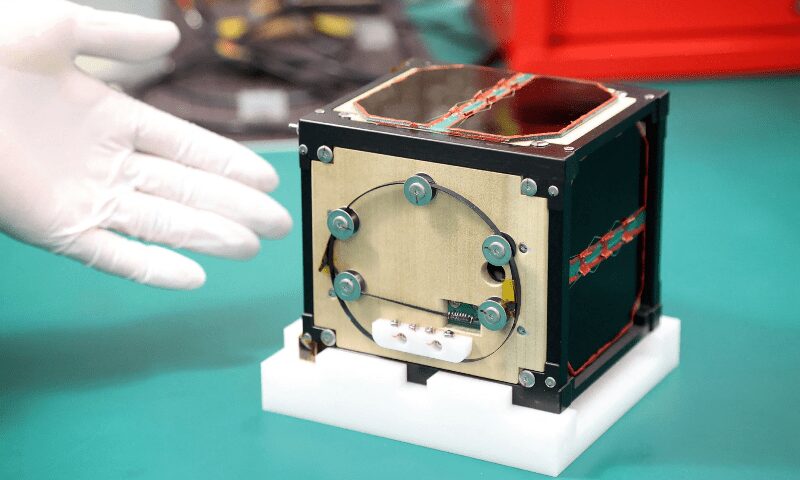In Tokyo, Japanese researchers have successfully crafted the world’s initial wooden satellite, set to be launched aboard a SpaceX rocket in September. Developed by scientists at Kyoto University in collaboration with Sumitomo Forestry, the experimental satellite boasts dimensions of just 10 centimeters (four inches) on each side.
The innovative use of wood in satellite construction aims to mitigate environmental concerns associated with retired satellites re-entering Earth’s atmosphere. Unlike metal satellites, the wooden material is expected to burn up entirely upon re-entry, potentially averting the creation of harmful metal particles.
At a press conference announcing the satellite’s completion, Takao Doi, an astronaut and special professor at Kyoto University, advocated for non-metallic satellites to become the norm in space exploration. Named LignoSat and crafted from magnolia wood, the satellite will be handed over to Japan Aerospace Exploration Agency (JAXA) next week for its eventual journey to the International Space Station (ISS) aboard a SpaceX rocket from the Kennedy Space Centre.
Following its deployment from the Japanese ISS experiment module, LignoSat will undergo rigorous testing to assess its resilience and durability in space conditions. Data transmitted from the satellite will enable researchers to monitor its performance under varying temperatures and stress levels, providing valuable insights into the viability of wooden satellites for future space missions.
